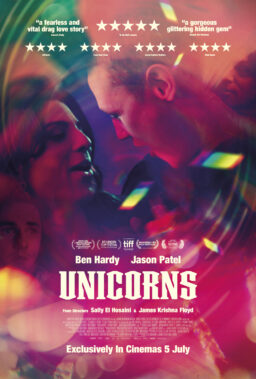CANNES, France — Coming up for air like an exhausted swimmer, the Cannes Film Festival produced two splendid films on Wednesday morning, after a week of the most dismal entries in memory. Denys Arcand‘s “The Barbarian Invasions,” from Quebec, and Errol Morris‘ documentary “The Fog of War,” about Robert McNamara, are in their different ways both masterpieces about old men who find a kind of wisdom.
But that is not the headline. The news is that on Tuesday night, Cannes showed a film so shockingly bad that it created a scandal here on the Riviera not because of sex, violence or politics, but simply because of its awfulness.
Those who saw Vincent Gallo‘s “The Brown Bunny” have been gathering ever since, with hushed voices and sad smiles, to discuss how wretched it was. Those who missed it hope to get tickets, for no other film has inspired such discussion. “The worst film in the history of the festival,” I told a TV crew posted outside the theater. I have not seen every film in the history of the festival, yet I feel my judgment will stand.
Imagine 90 tedious minutes of a man driving across America in a van. Imagine long shots through a windshield as it collects bug splats. Imagine not one but two scenes in which he stops for gas. Imagine a long shot on the Bonneville Salt Flats where he races his motorcycle until it disappears as a speck in the distance, followed by another shot in which a speck in the distance becomes his motorcycle. Imagine a film so unendurably boring that at one point, when he gets out of his van to change his shirt, there is applause.
And then, after half the audience has walked out and those who remain stay because they will never again see a film so amateurish, narcissistic, self-indulgent and bloody-minded, imagine a scene where the hero’s lost girl reappears, performs fellatio in a hard-core scene and then reveals the sad truth of their relationship.
Of Vincent Gallo, the film’s star, writer, producer, director, editor and only begetter, it can be said that this talented actor must have been out of his mind to (a) make this film and (b) allow it to be seen. Of Chloe Sevigny, who plays the girlfriend, Daisy, it must be said that she brings a truth and vulnerability to her scene that exists on a level far above the movie it is in.
If Gallo had thrown away all of the rest of the movie and made the Sevigny scene into a short film, he would have had something. That this film was admitted into Cannes as an Official Selection is inexplicable. By no standard, through no lens, in any interpretation, does it qualify for Cannes. The quip is: This is the most anti-American film at Cannes, because it is so anti-American to show it as an example of American filmmaking.
But enough of horror.
Now to grace, truth and humanity. Denys Arcand’s “The Barbarian Invasions,” which could be a hit on the art-film circuit, concerns the dying days of a professor named Remy, played by Remy Girard in a performance brimming with life, energy, defiance, humor and regret. He has been a wicked womanizer all his life, is alienated from his children, is informed he has a short time to live.
His son Sebastien (Stephane Rousseau) flies in from London to be at the old man’s bedside, and tries to make his dying more comfortable; in one astonishing scene, told that heroin is a better pain-killer than morphine, he simply goes to the Montreal narcotics squad to ask where he can buy it. Old friends and lovers gather at the bedside, as the measure is taken of Remy’s life and times. There is Rabelaisian humor in the film, and real sadness; there were so many tears and sniffles at the press screening that it appeared even journalists have feelings.
Morris’ “The Fog of War” is based on 20 hours of interviews with McNamara, who tries to explain the mistakes that led to Vietnam. As the Defense secretary under John F. Kennedy and Lyndon B. Johnson, he was seen as the architect of the war, and here he unflinchingly accepts responsibility, while at the same time regretting the wrong-headedness that continued the war long after it was obviously misguided. One timely observation: If we can’t convince nations with comparable values of the worth of our actions, then we should reconsider them.
McNamara at 85 is forceful, plain-spoken, merciless on himself and others. This is not a sad old man but a man who is still healthy, powerful and thoughtful, who analyzes his actions with no apologies and no evasions.
I doubt that Donald Rumsfeld will want to see this film, but it could prove enormously valuable to him.
As we head into the weekend, Clint Eastwood‘s “Mystic River” looks like an oasis in the desert. There have been a few fine films here, noted in earlier dispatches, but nobody can remember a year when the overall quality of the official selections was so low. At least with Eastwood, we are likely to get a real movie, with characters and a story and all that good stuff. By contrast, although I have met some admirers of Lars Von Trier‘s portentous three-hour parable “Dogville,” I have not met any who are eager to sit through it again.











